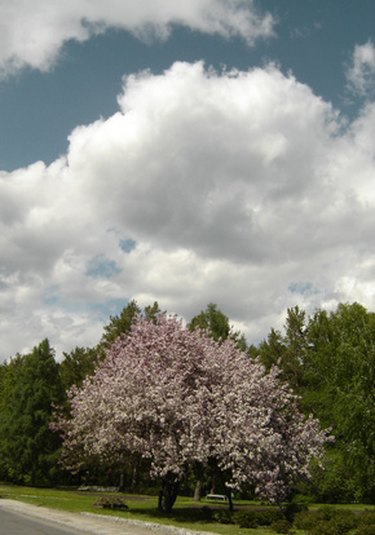
California has been a breadbasket to the nation for years. Commercial production of fruit remains an important crop, and home gardeners can take advantage of favorable weather conditions in much of the state to grow their own fresh fruit.
Learn About Your Climate Zone
Video of the Day
Fruit trees will grow best when you plant them in spring, after your final frost. Sunset Magazine has determined the average dates of this occurrence to assist gardeners when to plant frost tender plants, such as young fruit trees. The magazine's website lists the date of the final spring frost for all of Northern California, the San Francisco Bay Area and nearby inland areas, Central California, the Los Angeles area, San Diego and surrounding cities, and the Southern California Desert. It's important to know when your final spring frost will occur so you avoid damaging a young fruit tree by planting it too early.
Video of the Day
Plant in Spring
Many plants benefit from spring planting because the weather is gradually becoming warmer and the number of hours of daily sunlight are gradually increasing. These conditions help young plants to slowly become acclimatized to life outdoors. Fruit trees are no exception: When you plant a bare-root fruit tree in California after the final spring frost, it will have until the first fall frost to establish itself and grow to its maximum potential before going dormant in winter.
Wait Until the Sun is Low
When you plant a fruit tree in California, you can avoid and prevent transplant shock if you plant it after the sun has mostly left the area where you will be planting it. From late afternoon until the sun shines on the newly planted tree in the morning, the tree will be able to adjust to its new environment without having to compete for life in strong sunlight. Mornings are often foggy in many parts of California, which might tempt you to plant your tree at this time of day, but remember that the sun can make the afternoon quite warm after the fog burns off.